A sonic cloud of disco and house music followed the crowd of beaming faces at Bermuda's first-ever Pride celebration in late August. There were chants of solidarity and posters signaling a growing, yet mighty LGBTQ+ community primed to transform the sun-soaked, turquoise watered British Overseas territory. Found within the more than 6,000 attendees in the streets of Hamilton, the country's capital, was a complicated, generations-long narrative of resilience and a sizable ecosystem of identities and experiences that helped lay fertile ground for this tremendous display of collective power.
"I'm from an era where it was taboo to even talk about the subject of being gay and most people didn't even know what being gay meant," says Mark Anderson, 52, who revealed that he had been arrested while in drag once during his younger years. "I was never convicted of a crime, but the law at that time, which is pretty much still on the books, is that you had to have on three pieces of clothing."
Despite legal run-ins, Anderson (who claims the title of "Queen of Bermuda") continues to perform today as the vivacious and graceful Sybil Barrington. During the parade that Sunday, her performance of the Tina Turner classic "River Deep Mountain High" mesmerized the large mass of rainbow-clad bodies in the streets.
Sybil Barrington & Peter Carpenter
While Anderson's mere presence as a drag queen has confronted Bermuda's conservatism throughout the last few decades, there have also been other staunch LGBTQ+ folks crusading for justice as well. Enter Peter Carpenter, 65, a native Bermudian who spent most of his childhood and early adulthood living abroad. Upon his return to the territory in the early '80s, he became one of the first Bermudians to be openly gay. His achievements include co-founding the Rainbow Alliance of Bermuda, an organization dedicated to advocating for the LGBTQ+ community, and working with Dr. John Stubbs, a Bermudian politician who advocated for a 1994 bill to decriminalize consensual same-sex intercourse within the territory.
"I was inspired very much by Dr. Stubbs' bill and by seeing the film Philadelphia," he says. "And as hopeful as we were for the passage of his bill in the House of Assembly, it was very clear to me that there was no human face to the fight. Without blowing my trumpet, I do believe that sitting in the front seat in the public gallery of the House of Assembly for this debate played a part in the votes of the [members of Parliament] who mentioned me by name during the course of it.
A Fight For Love
For 54-year-old community organizer Linda Bogle Mienzer, it's been important to add a racial context to the fight for LGBTQI+ equality in Bermuda. When she came out nearly 20 years ago -- in a religiously conservative family and in the workplace as a police officer -- she wanted to express the fact that being queer isn't simply a white experience. Though she says the majority of her family remains unsupportive, she is encouraged by the love that she receives from some family members, like her nephew. Despite the tension Mienzer experienced with some loved ones upon coming out, she and her partner, Christine, remain committed to being open about their journey.
"As part of the Black community in this country, there's a huge risk because you've been raised to be so entrenched in, not only religious beliefs, but a culture that says that we [aren't queer]," she says. "If we are, we've got to keep it in the closet. I say this to my wife all the time, 'I want to be that person that I needed when I was young.'"
Linda Bogle-Mienzer and An Ly
Living in true authenticity and marrying the woman that she loved wasn't simple for Mienzer, as the fight for marriage equality in Bermuda has been a winding road to progress. It was the mid-2000s when the fate of same-sex marriages first gained considerable attention in the territory. Protections on the basis of sexual orientation and in favor of marriage equality were routinely struck down by Bermuda Parliament over the course of the next decade. In early 2016, a referendum was introduced allowing citizens to vote on establishing civil unions or marriage equality in Bermuda. More than 60 percent of voters rejected both proposals, and t less than half of eligible voters reportedly even made it to the ballot box.
Native Bermudian Winston Godwin and his Canadian partner, Greg DeRoche, became notable soon after the referendum when they entered the marriage equality fight by advocating at the Supreme Court. After a favorable ruling in May 2017, their nuptials were one of several same-sex marriages upheld in the aftermath of that decision. Still the battle wasn't over. A year later, same-sex marriages were re-banned by the Bermudian government, rendering those relationships as domestic partnerships instead. Last June, the Supreme Court struck down that law, reinstating marriage equality for same-sex couples. Given the tumultuous flip-flop on progress (and the unfortunate achievement of becoming the first country to repeal same-sex marriage), Godwin and DeRoche decided to marry in Canada. The country was DeRoche's birthplace and the country where Godwin was educated in his early adulthood, so it was a natural fit.
"When [marriage equality] was legalized back in May of 2017, a bunch of couples got married then," Godwin says. "We ended up choosing to get married in Canada at the time and we got a lot of flak because they wanted it to be in Bermuda. It was never really about us, it was about the principle of it. We also wanted to ensure that [DeRoche] was there and we ended up deciding to get married in Canada, just a small, super small ceremony with friends and family."
Winston Godwin & Greg DeRoche
Mienzer and her partner similarly sought out nuptials overseas, after receiving threats of protest if their wedding occurred in Bermuda. She had plans for a major celebration at a cathedral and a horse-drawn carriage, while Christine had more low-key vision for their big day. They struck a compromise with an intimate reception in Greensboro, North Carolina under the officiation of Mienzer's cousin, who is a minister there.
"I don't regret doing it that way, because we're always going to be able to look back on it and it's just going to be ours," Mienzer says. "No controversy, nobody knew us, nobody cared."
The Fight Ahead
Though there have been major wins for cisgender queer people in Bermuda, widespread acceptance and representation of those who are intersex or transgender is still lacking. As an intersex woman, 28-year-old Ava Pitt finds that deeper education around gender and sex needs to be prioritized by all.
"Being a person that has had this gender metamorphosis is very new to peoples' experiences here," she says. "But [my experience has] really gone quite smooth actually. Unfortunately, on face value it's an easier pill to swallow if you are able to conform to someone's limited box of what's attractive or if you blend in well with society."
Pitt says intersex and trans experiences overlap considerably in Bermuda, but she only knows a few trans people there, given the small size of the island. There was little-to-no considerable trans presence during the Pride weekend festivities. According to Mark Anderson, the majority of the trans people he has known over the years have traveled to the United States, Canada, or England.
Zakiya Lord & Ava Pitt
"I can understand, to a degree, why they left, because it was pretty much from the same issues of what most gay people had growing up in the '50s, '60s, and '70s," he says. "I left Bermuda, because even though I came from a very strong, supportive family, I still had issues outside of my family."
It is quite common for Bermudians to spend time abroad or simply to decide to live abroad indefinitely while keeping ties to the territory. For An Ly, 43, who is based in San Francisco, visiting Bermuda's historic Pride celebration was a cathartic experience. Ly left Bermuda at 18 and found a home in the States where he now lives with his husband and three-year-old daughter.
"Growing up in paradise is beautiful and the people are amazing, but when you're a part of this community and don't feel like you can come out, you suppress a lot of things," Ly says. "There's a lot of healing that's taking place. I'm hoping that I can go back to the U.S. and move on with things [around my identity] that I probably had obstacles with for years and I haven't realized why."
Bermudian-turned-Brooklynite Zakiya Lord, 41, has kept her thumb on the pulse of the island's progress for years. A longtime social justice advocate, Lord works as the senior major gifts officer for Lambda Legal and serves as the deputy chairperson of OUTBermuda, an organization that promotes LGBTQI+ equality through disseminating educational resources. For Lord, who attended events during World Pride in New York City this June, there were some noticeable differences between the corporatization between Pride in the U.S. and in Bermuda.
"In other jurisdictions, the first Pride would be five people walking down the street and have more of a paper and tape feel, but Bermuda is a resourced country," she says. "Many of my friends would have to defend themselves tomorrow if they didn't get to walk under the banner of HSBC [Bank] or any of the institutions that allow to them the cover of, 'Oh, I'm just marching with my people from my work.'"
Another difference Lord noticed was how welcomed police presence was by organizers and attendees. While police often menacingly line the routes of parades in the states -- and there's been a major push to limit their involvement at the events -- Bermuda's law enforcement is more festively engaged in the happenings of the day.
"Here the police officers are literally our cousins. They're literally on the side, like kissing and hugging you because you know them by name, you know their children, you know everything about them, and that's important," she says. "We don't have as many histories of harassment. People largely don't tell the stories of police harassment. So I had to remind myself that it's a different world here and I cannot project my American experiences and my analysis."
Certainly Bermuda, like every other place that has held a Pride celebration, put forth its own flair during its first observance. Caribbean tunes were interspersed with the American pop music that hovered above that crowd during the parade. And much like the blazing sun is balanced by the territory's gorgeous, calming waters, so too is the winding trajectory of the country's LGBTQ+ community bolstered by its growing power. Queer Bermudians are holding their past while looking forward to more moments of celebration.
"I felt such a deep internal, spiritual feeling throughout the entire parade," Pitt says. "It connected you so deep to your childhood, where all those problems now have been seen, and some have been healed and acknowledged,"I felt like it was also really acknowledging the people that weren't able to celebrate with us. For so many centuries, they might have never imagined that they would have this time of celebration, acknowledgement, and love. This spiritual healing gave me goosebumps and this is an experience and a feeling that I don't think we will ever forget."
Photos by Quil Lemons. Special thanks to the Bermuda Tourism and Bermuda Pride.
RELATED: 35 Stunning Photos from Bermuda's First-Ever Pride Parade



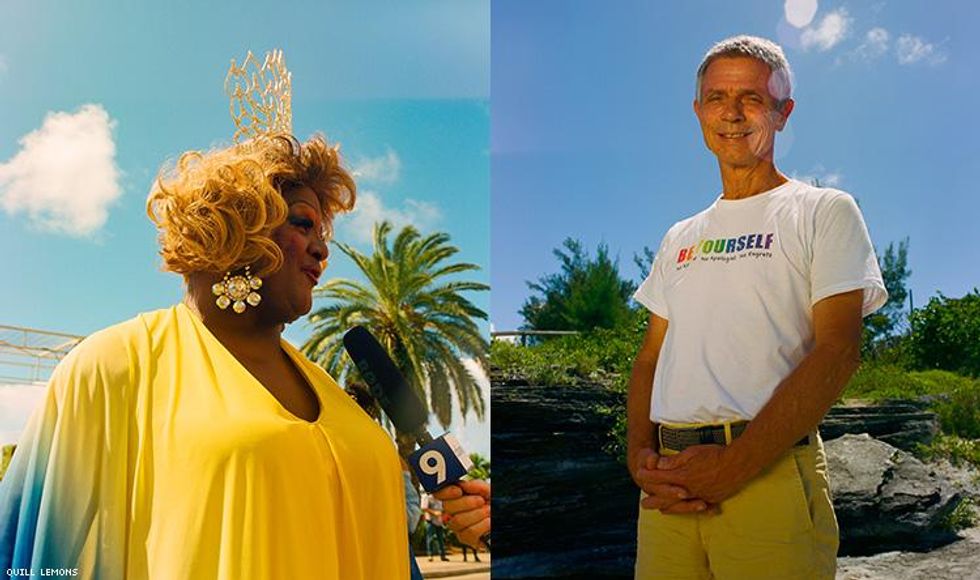
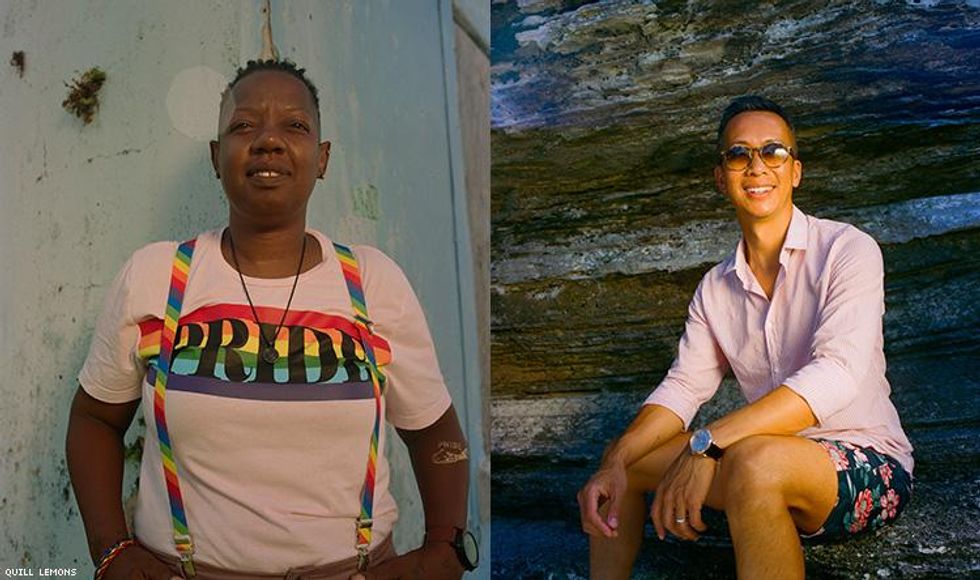
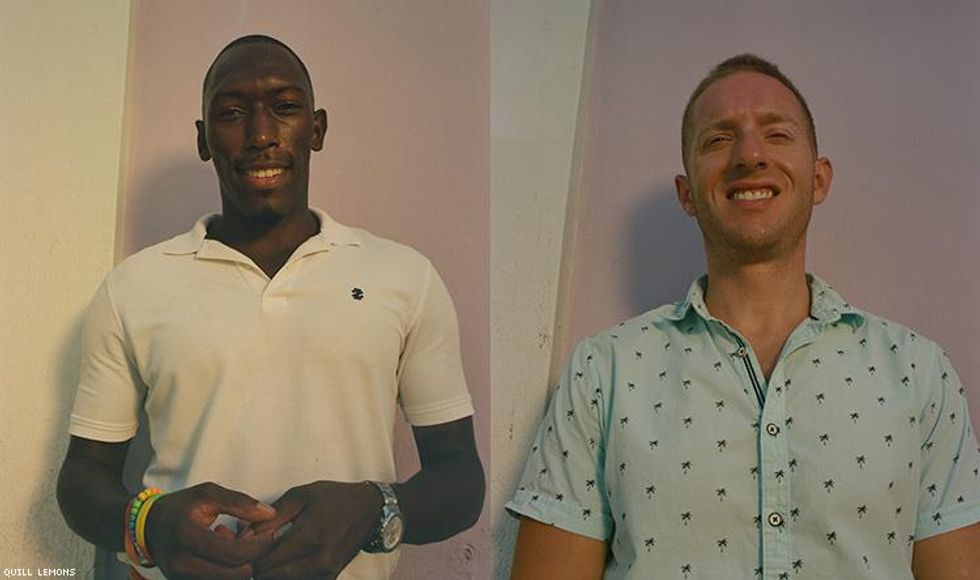
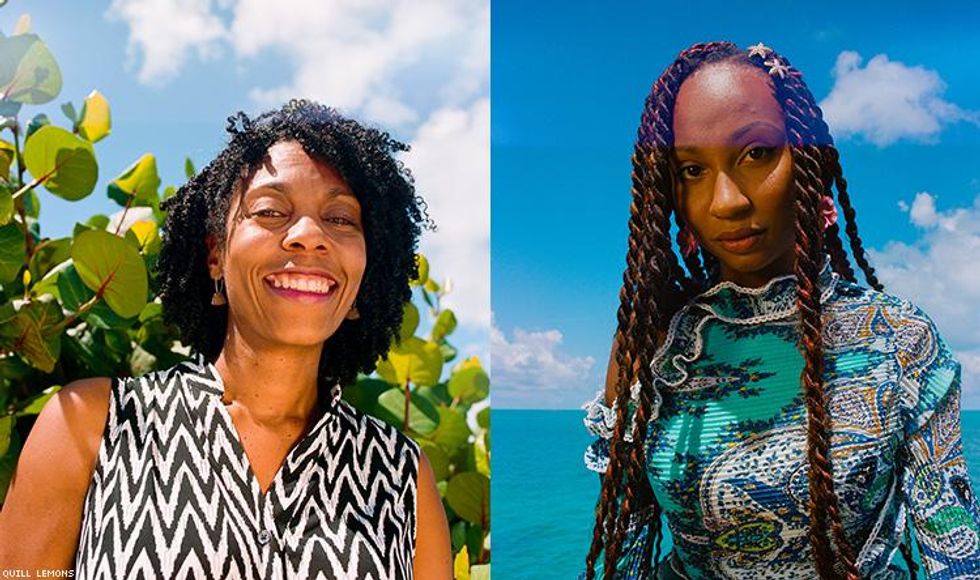
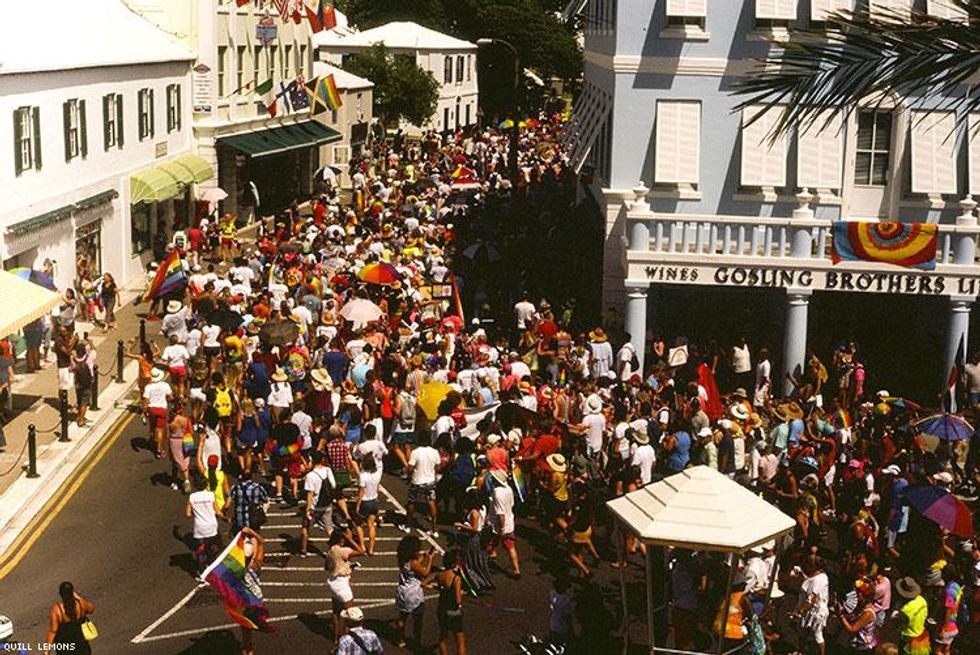
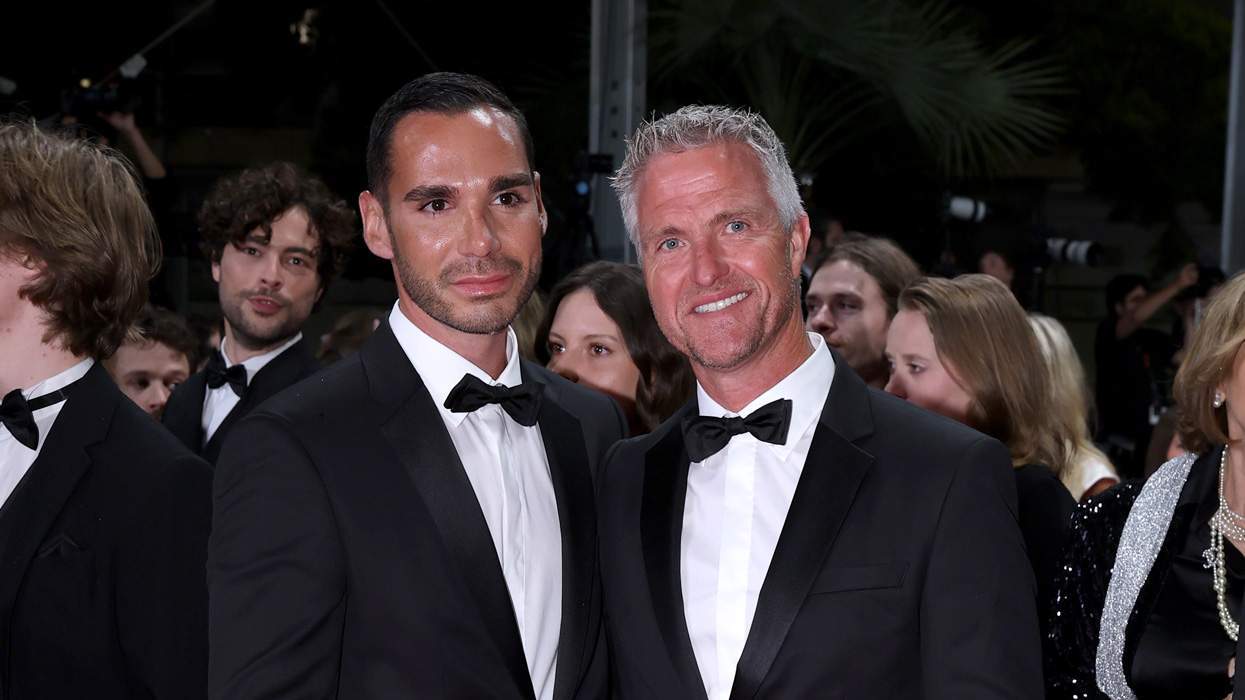


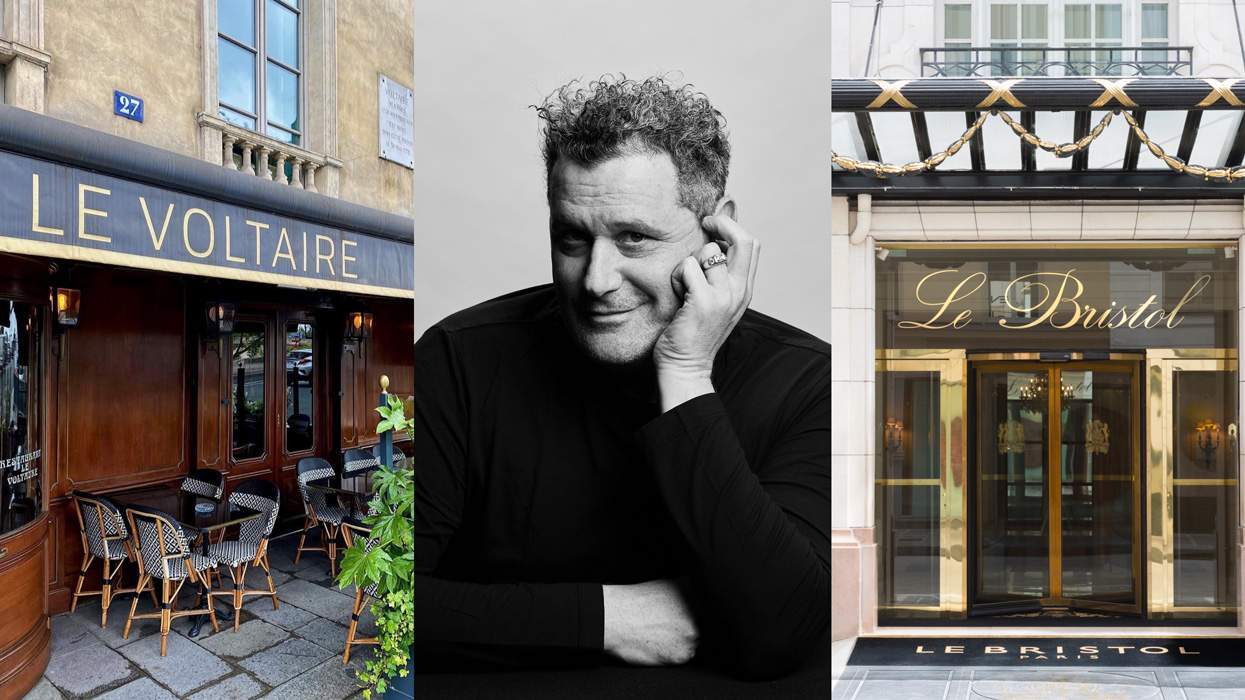
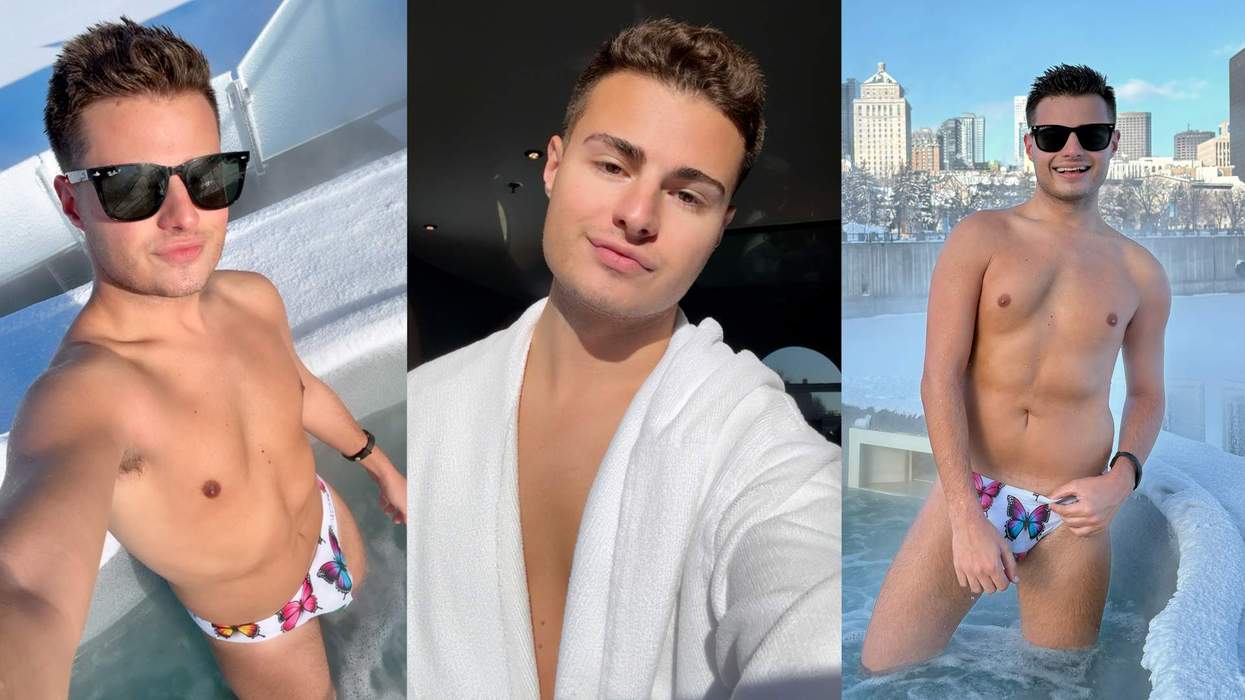
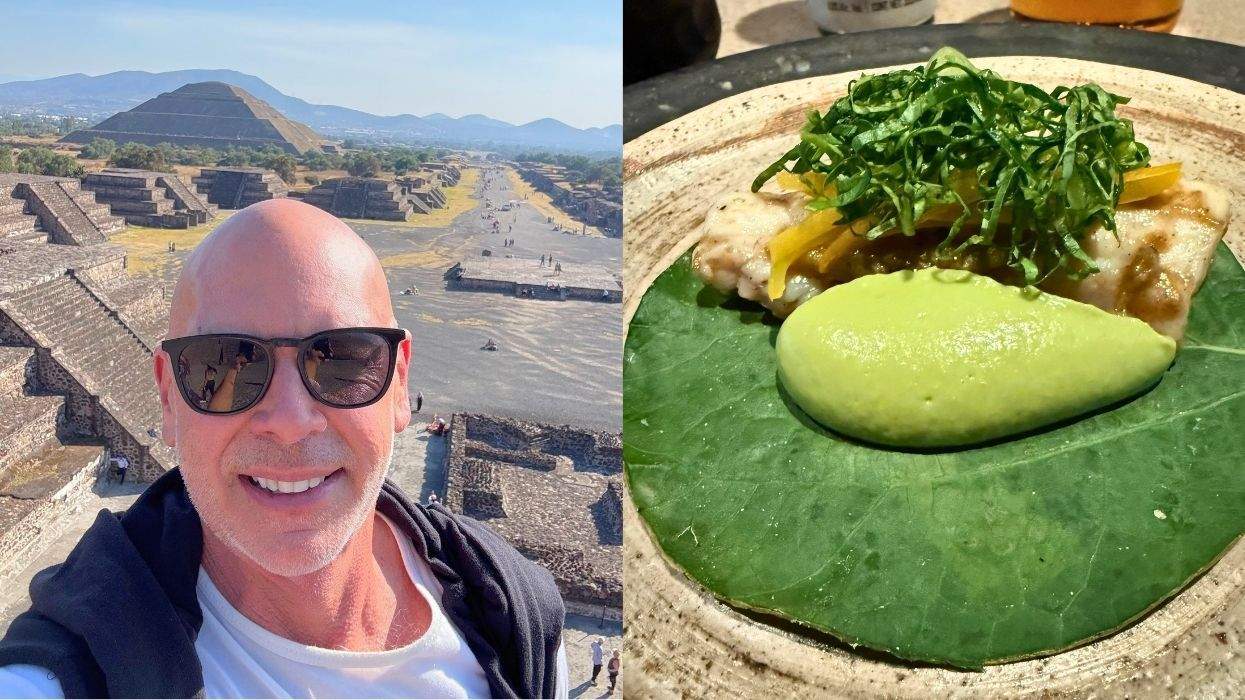

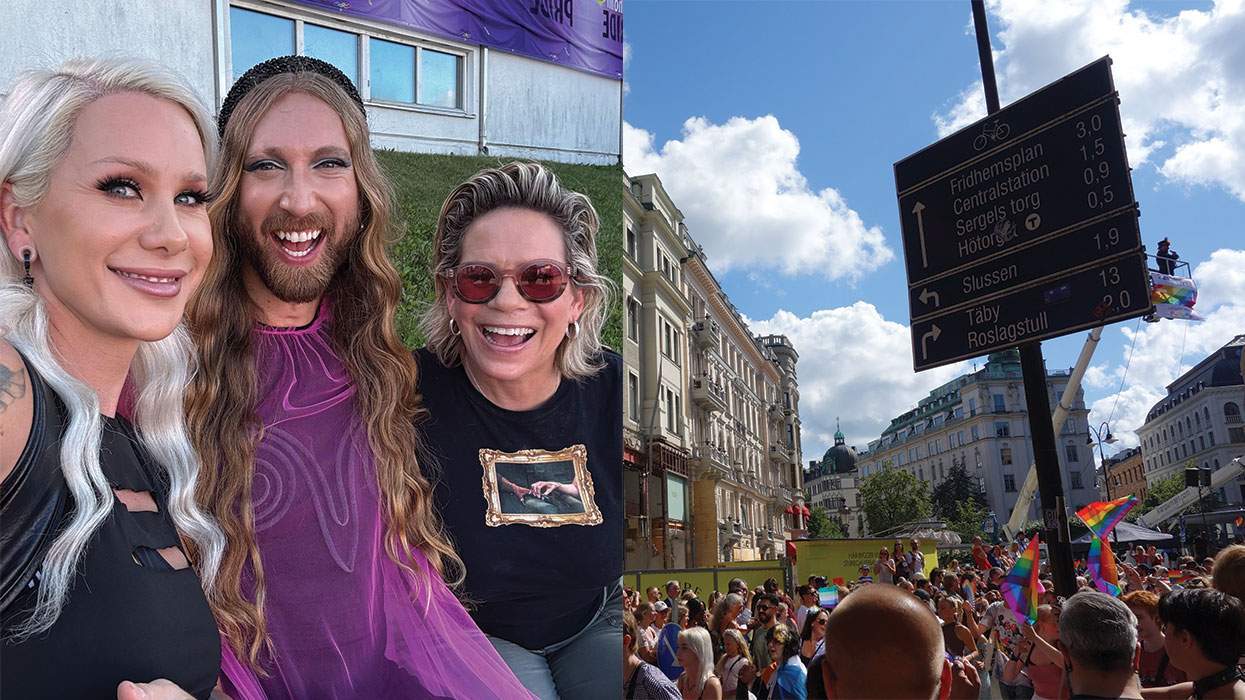








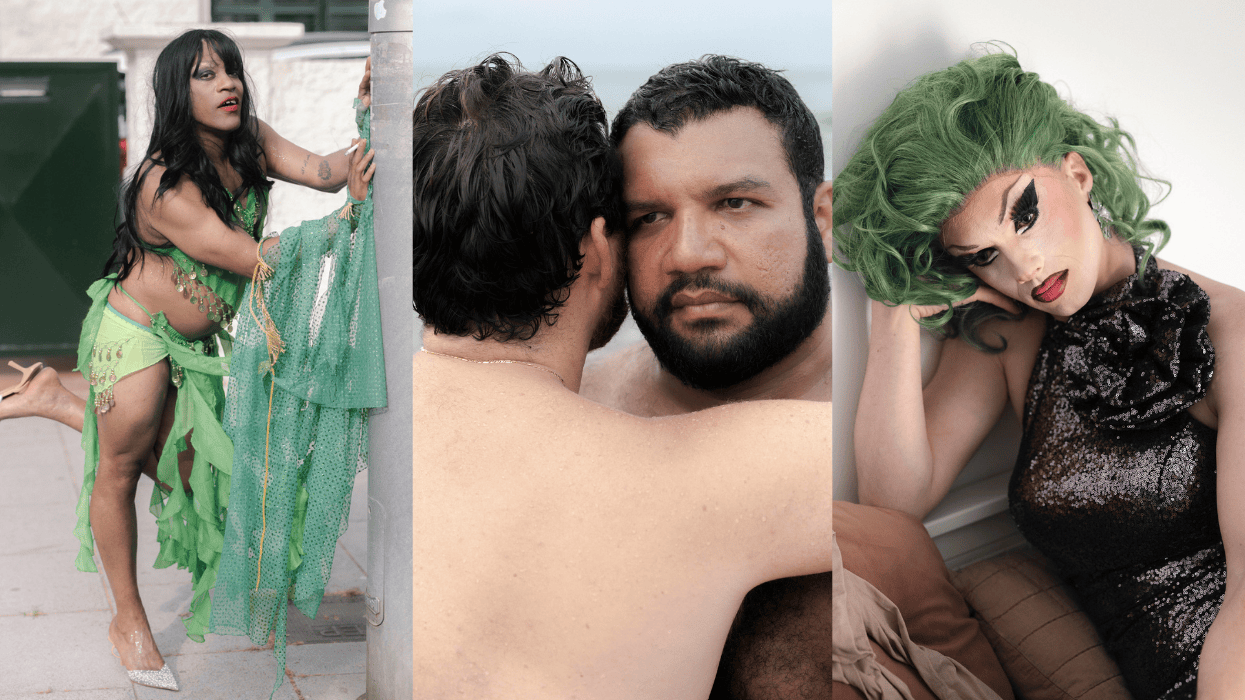
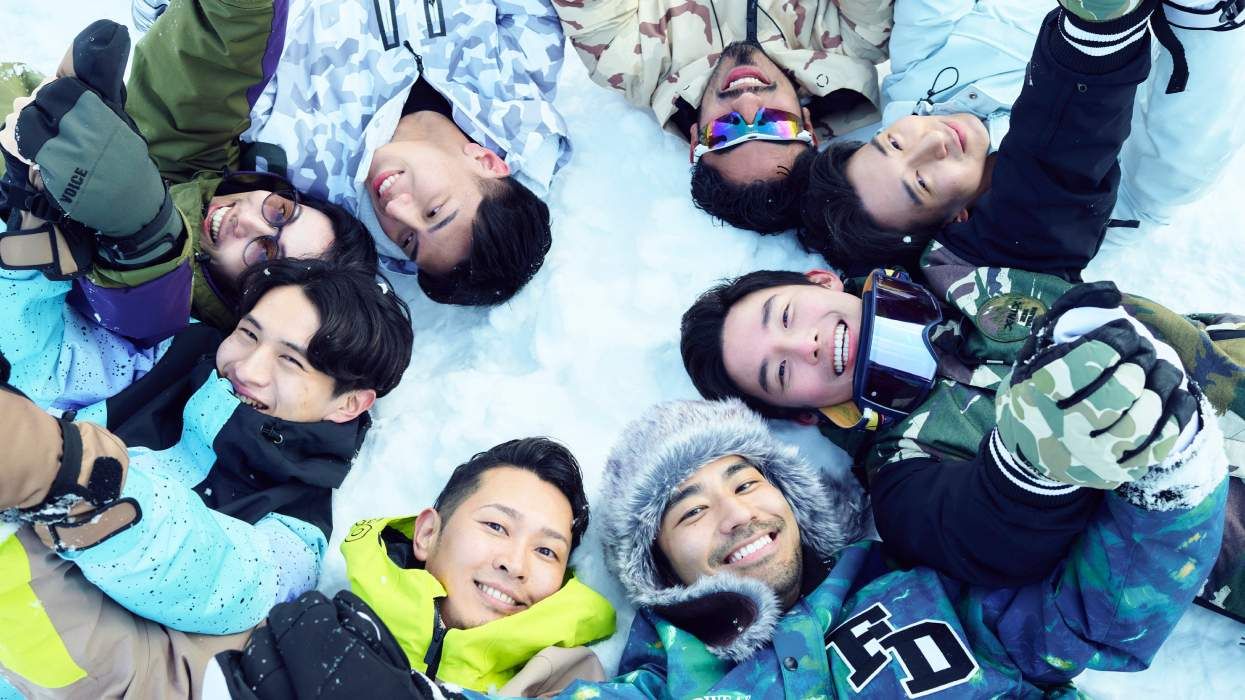
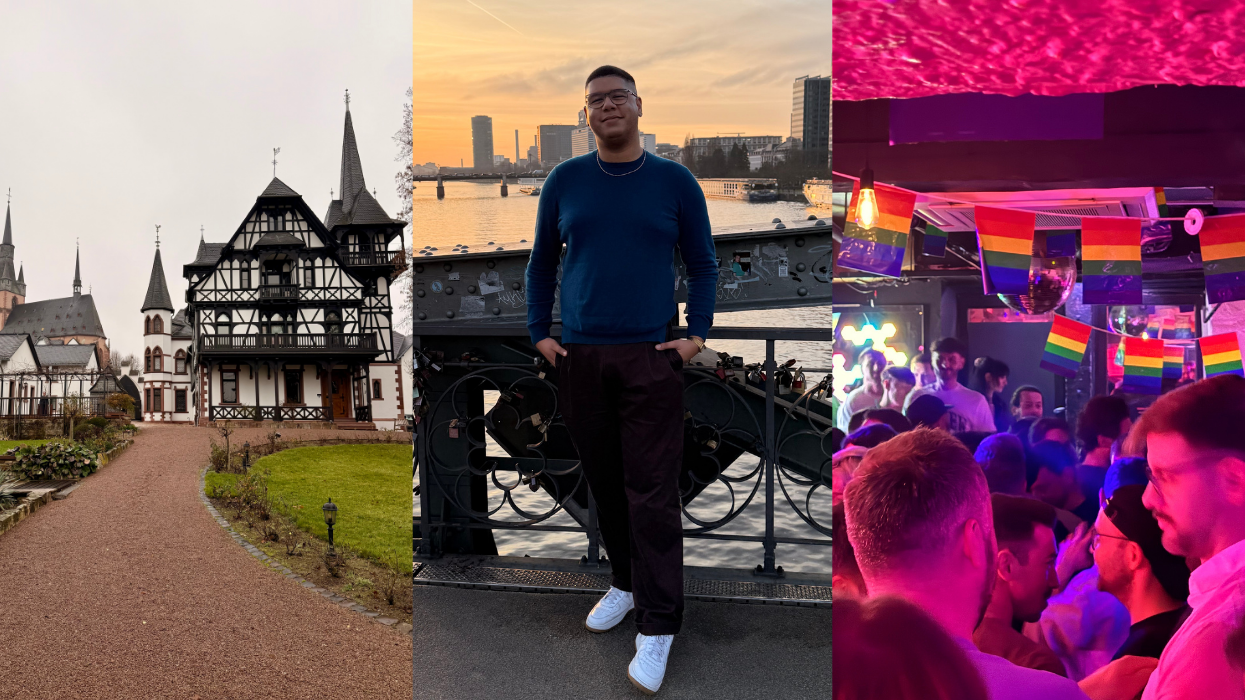
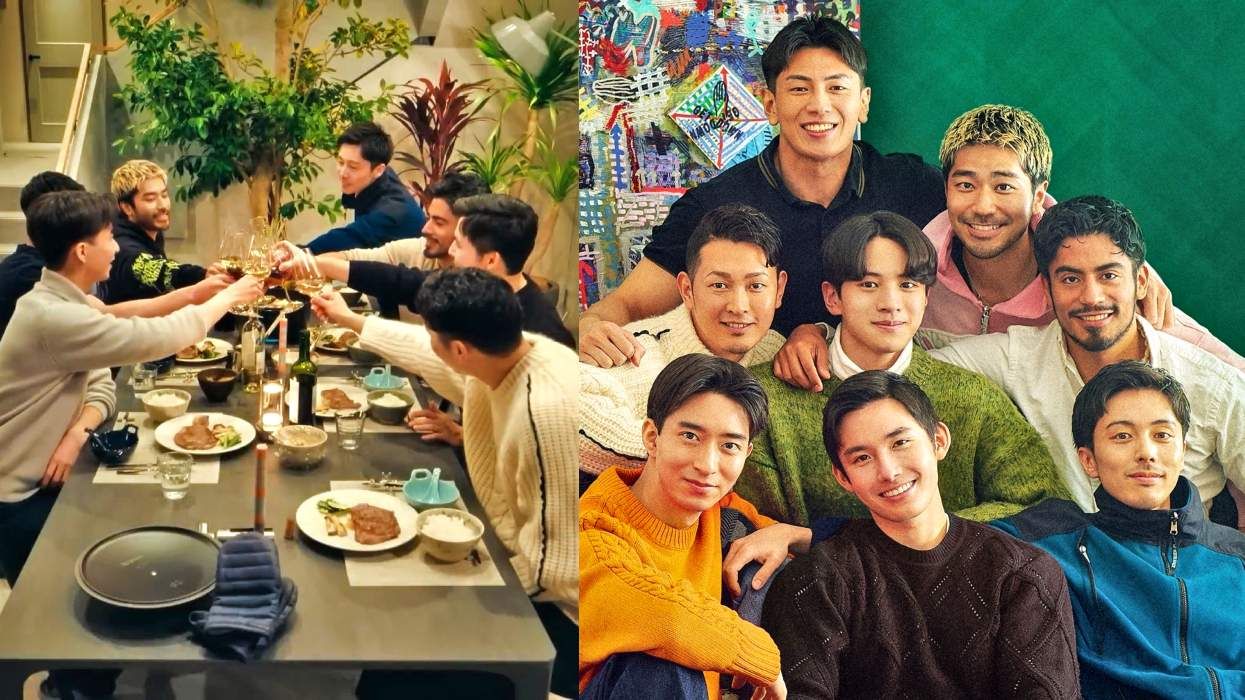
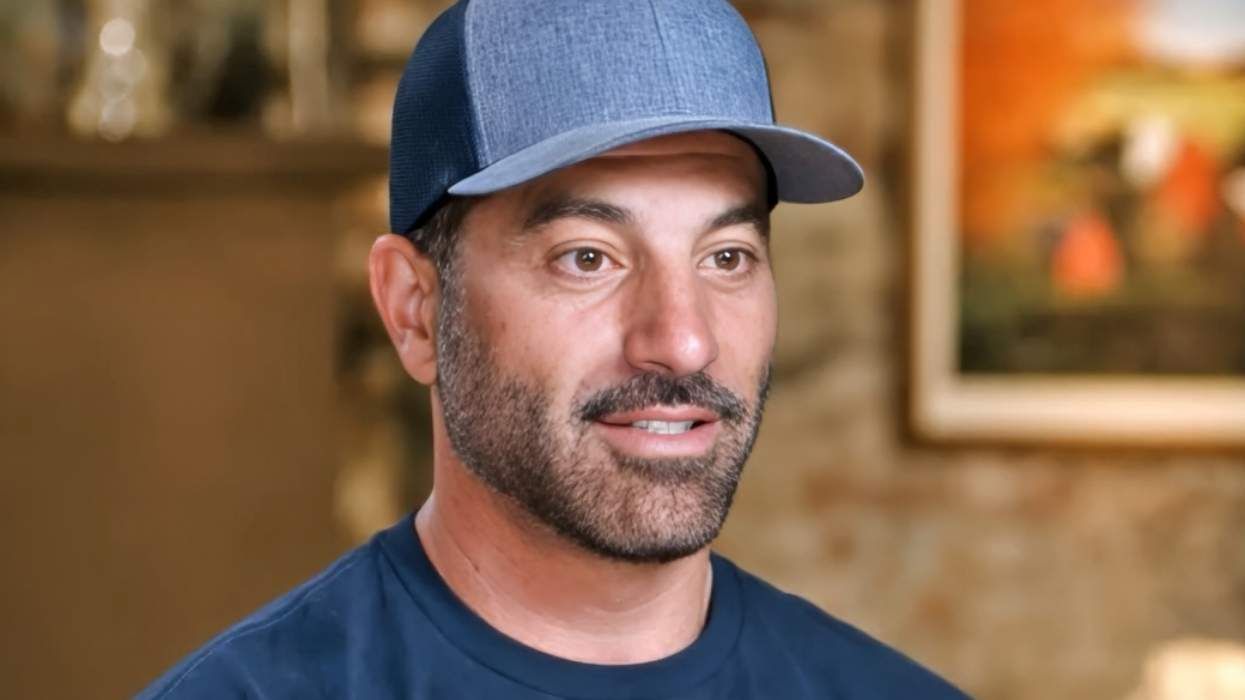
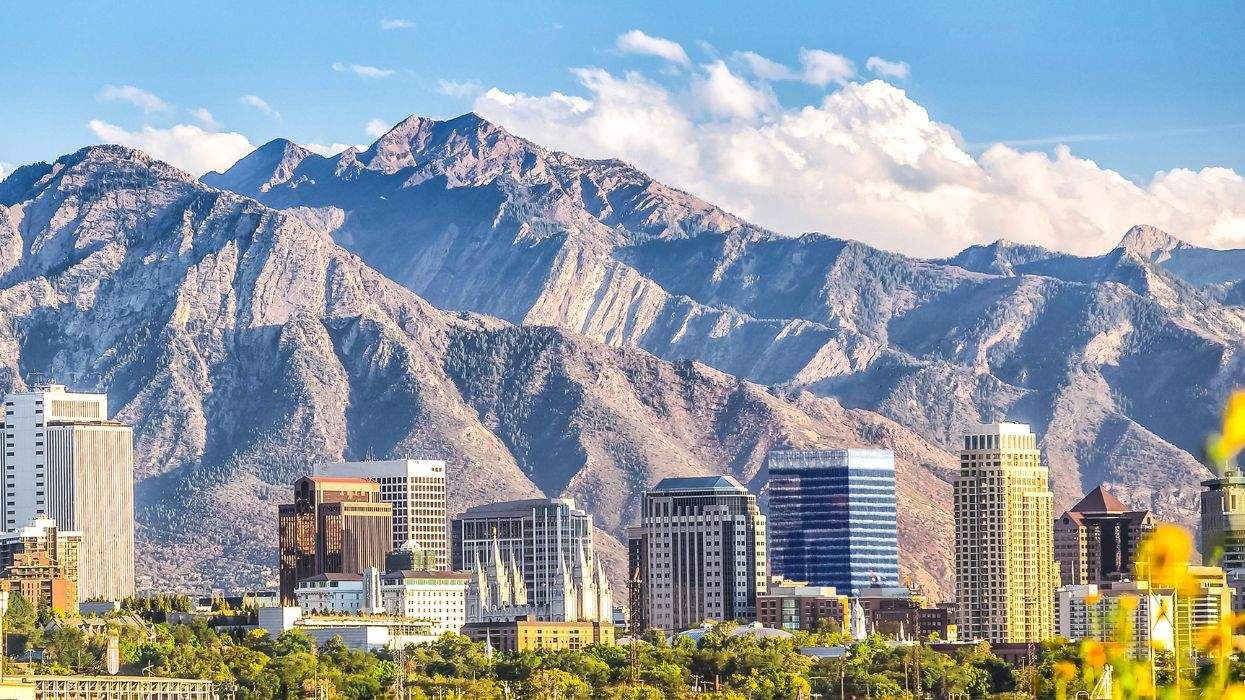
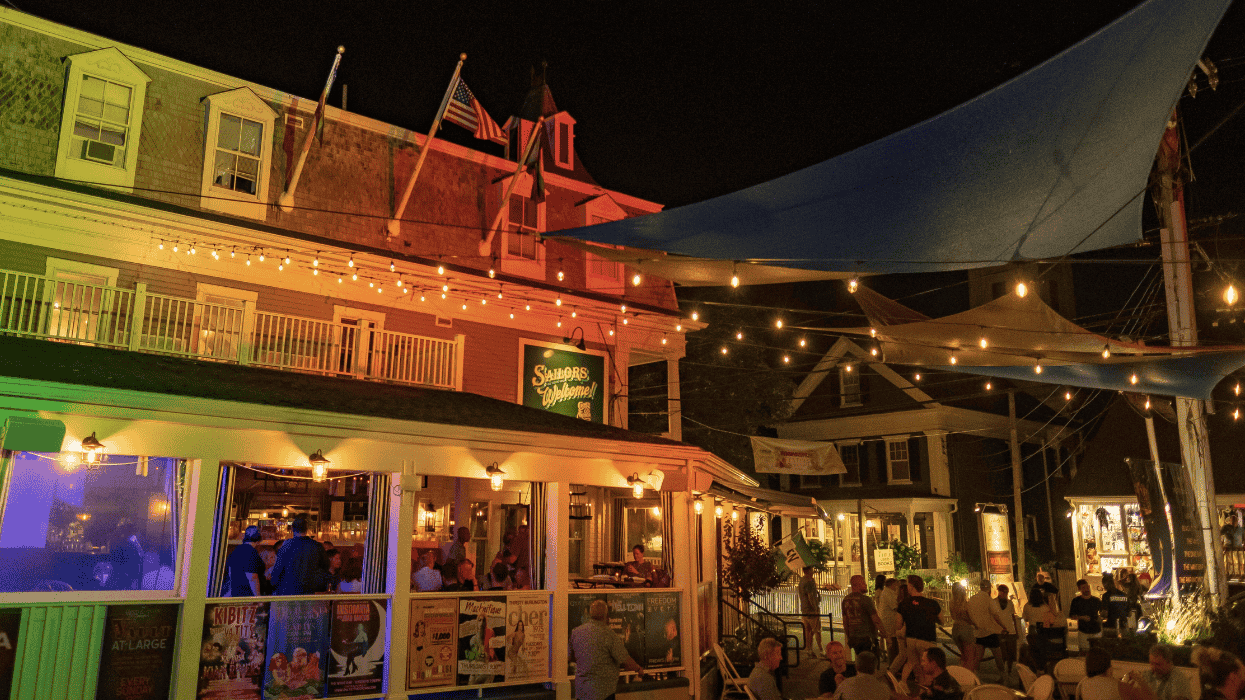
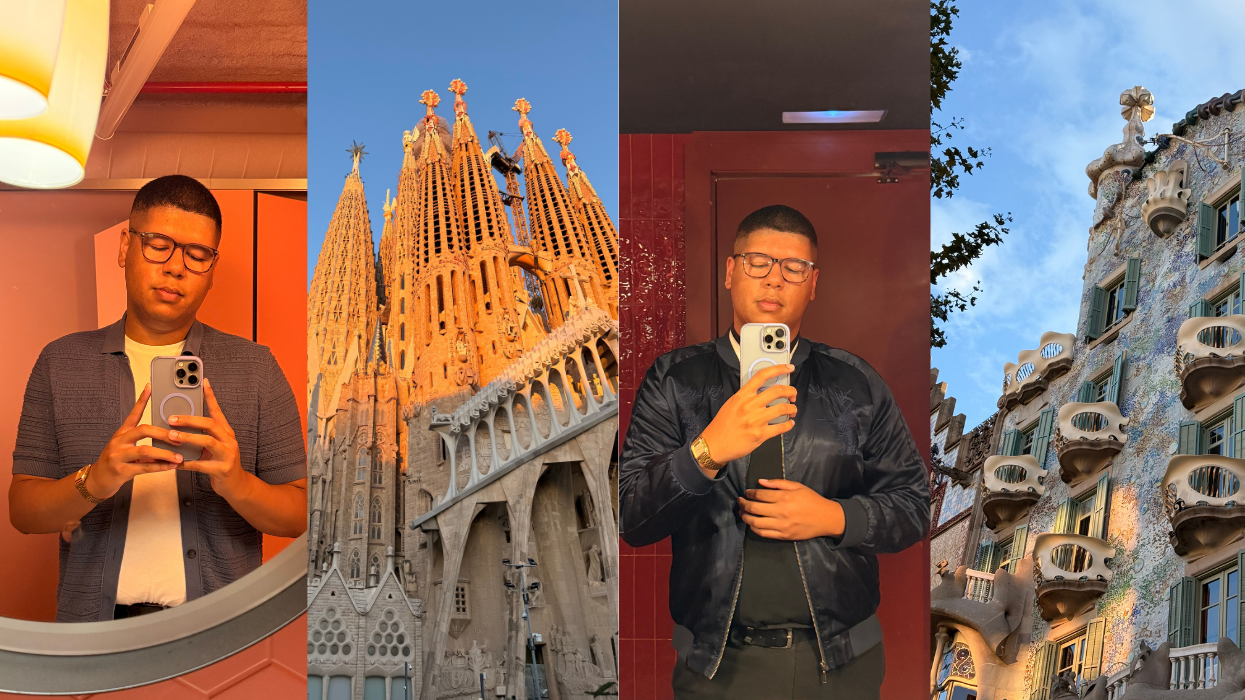
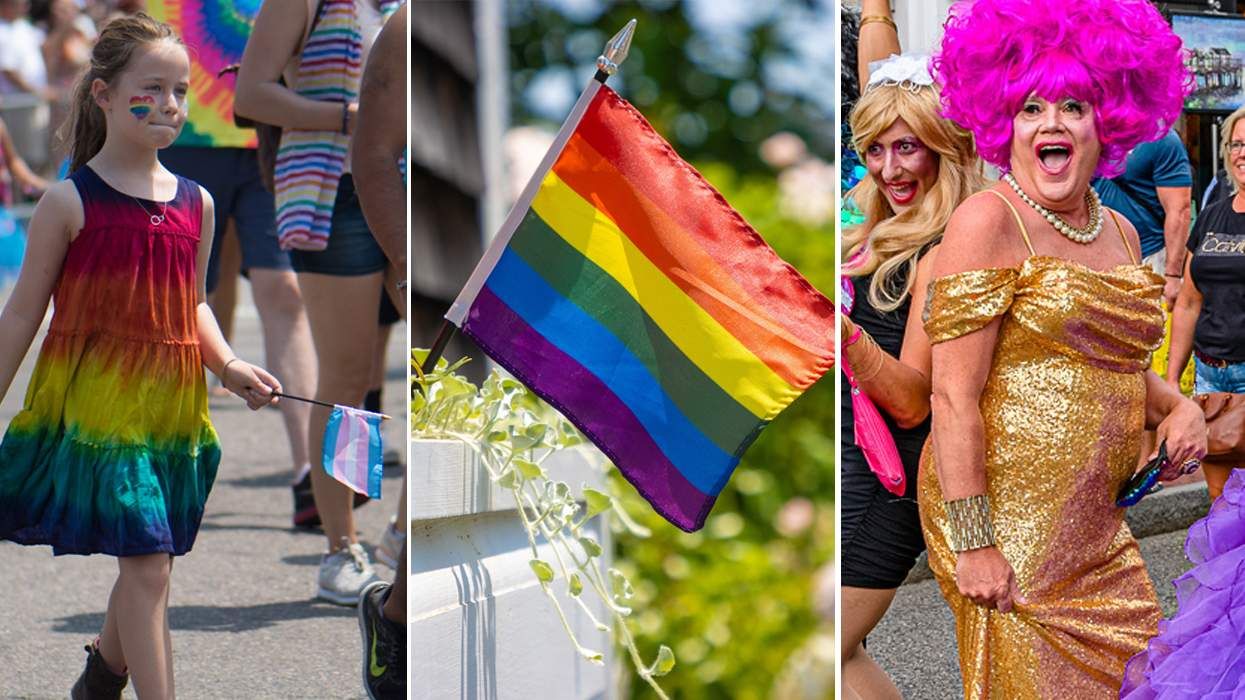

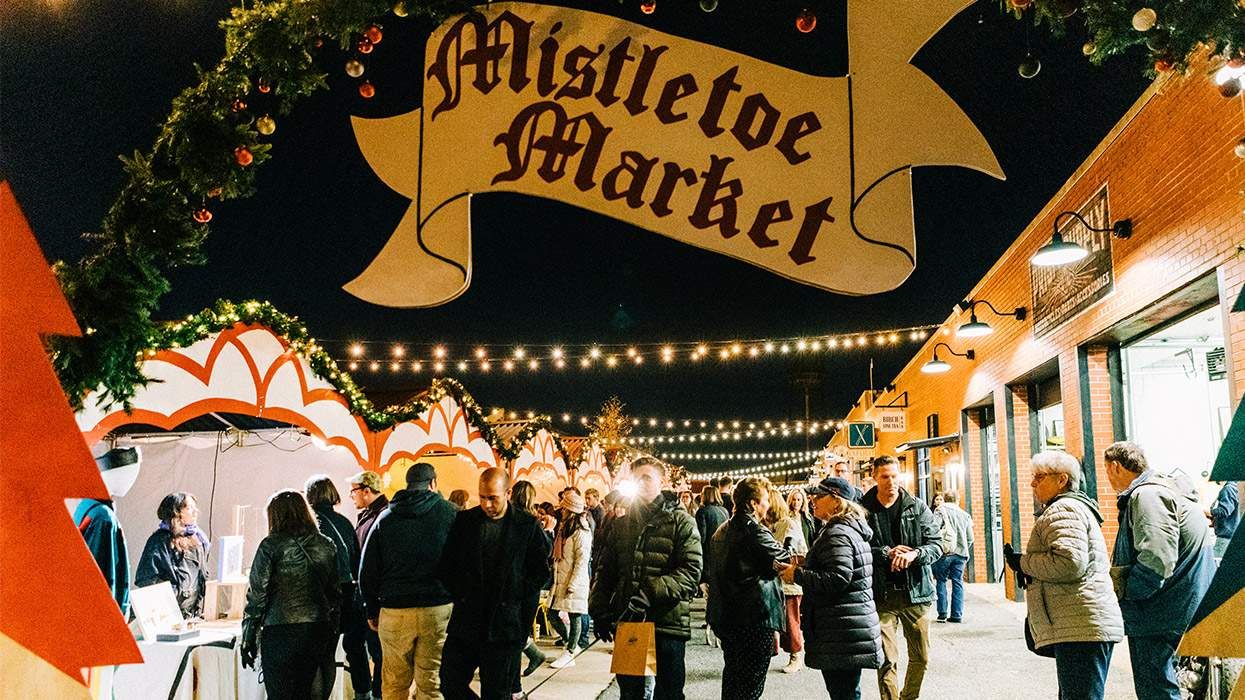
I watched the Kid Rock Turning Point USA halftime show so you don't have to
Opinion: "I have no problem with lip syncing, but you'd think the side that hates drag queens so much would have a little more shame about it," writes Ryan Adamczeski.